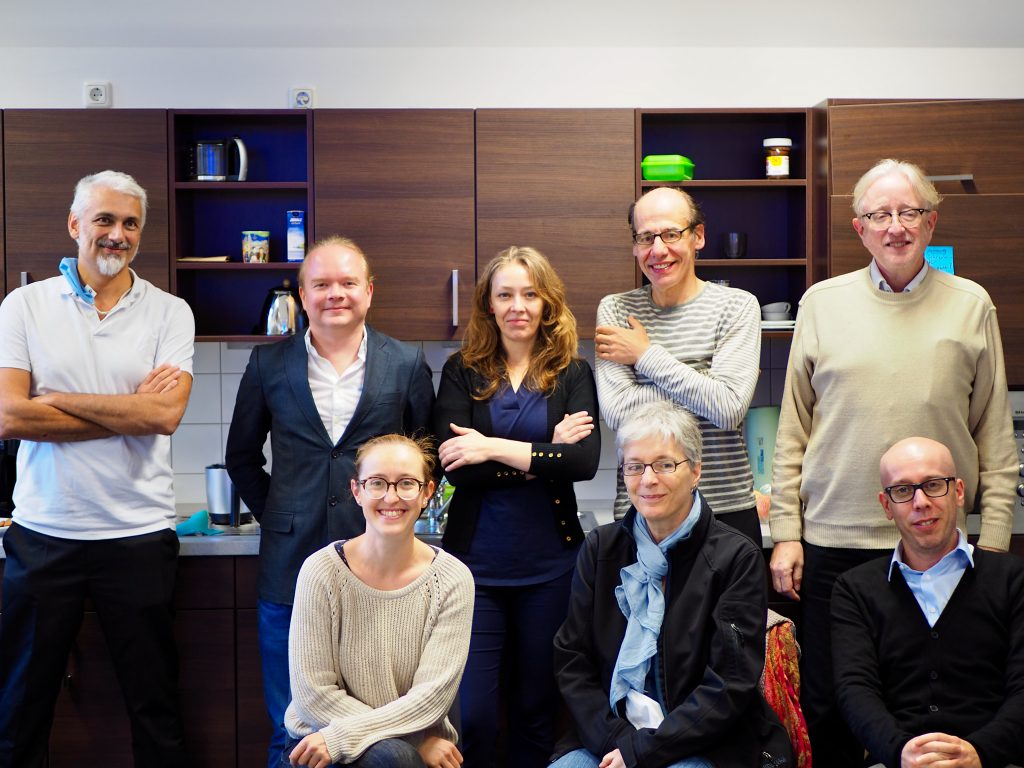First Fellows arrived in Aachen
We are excited to host our first c:o/re fellows in Aachen. They form a international group of distinguished researchers, representing a wide variety of scholarly approaches to the study of science, technology and society. Based at our research center for one year, they are enriching the diverse academic environment of RWTH Aachen University, each developing their own project, about which you can read briefly below.

Ana Bazzan is a Professor of Computer Science at Universidade Federal do Rio Grande do Sul, Porto Alegre, Brazil. Her research focuses on multiagent systems, in particular on agent-based modeling and simulation, and multiagent learning for the transportation domain. In her research project, she combines techniques from network theory with agent-based modelling and simulation to investigate complex human behavior in past and present societies.
The relation between humans and so-called intelligent systems, and the social changes associated to the design of such systems – be they ontological, interactional or societal – lies at the heart of Joffrey Becker’s research project. He is a Social Anthropologist and Research Associate at the Laboratoire d’Anthropologie Sociale at the Collège de France, Paris.
Amanda Boetzkes, Professor of Contemporary Art History and Theory at the University of Guelph, Canada, focuses on a different relation: that of humans and environment. During her stay in Aachen, she is working on her project that considers contemporary art’s mediation of climate change and its production of ecological perception in the case of the Greenland Ice Sheet area and its inhabitants.
The “Homo Futura: its History and Philosophy” is one of two book projects that Steve Fuller is working on during his stay in Aachen. The Professor of the Auguste Comte Chair in Social Epistemology at the University of Warwick, England, will be exploring the philosophical and historical background of two very different approaches to grasp humanity’s collective self-understanding: transhumanism and posthumanism.
Alexandre Hocquet is a Professor in the History of Science at the Université de Lorraine, France. His research focuses on the impact that software has on the production of knowledge in computational chemistry. How does software – not only its code, but its design, its usage and licensing among other aspects – transform research? This project adresses “software as the elephant in the room”.
Erica Onnis, Philosopher from the University of Turin, Italy, devotes her work to the understanding and clarification of the concept of emergence. By suggesting a revision of the theory of causation and clarifying the scope of notion of qualitative novelty she is going to develop a taxonomy of emergent phenomena in complex biological systems.
Markus Pantsar is a Senior Researcher in Theoretical Philosophy at the University of Helsinki, Finland. His research revolves around philosophy of mathematics and connected areas, such as AI, logic and complexity. The aim of his project is to contribute to the feasibility of building AI agents with human like-intelligence by taking a computational and cognitive approach.
Frederik Stjernfelt is Professor of Semiotics, History of Ideas and Theory of Science at Aalborg University, Denmark. As the title suggests, his research spans over a broad area of the humanities and social sciences, from meaning and cognition to philosophy of science and free speech. Among other achievements, he is a leading scholar on Charles S. Peirce. His project consists in develpoing a perspectivist philosophical anthropology, as required in the context of humans’ extension onto digital and other technological media.


